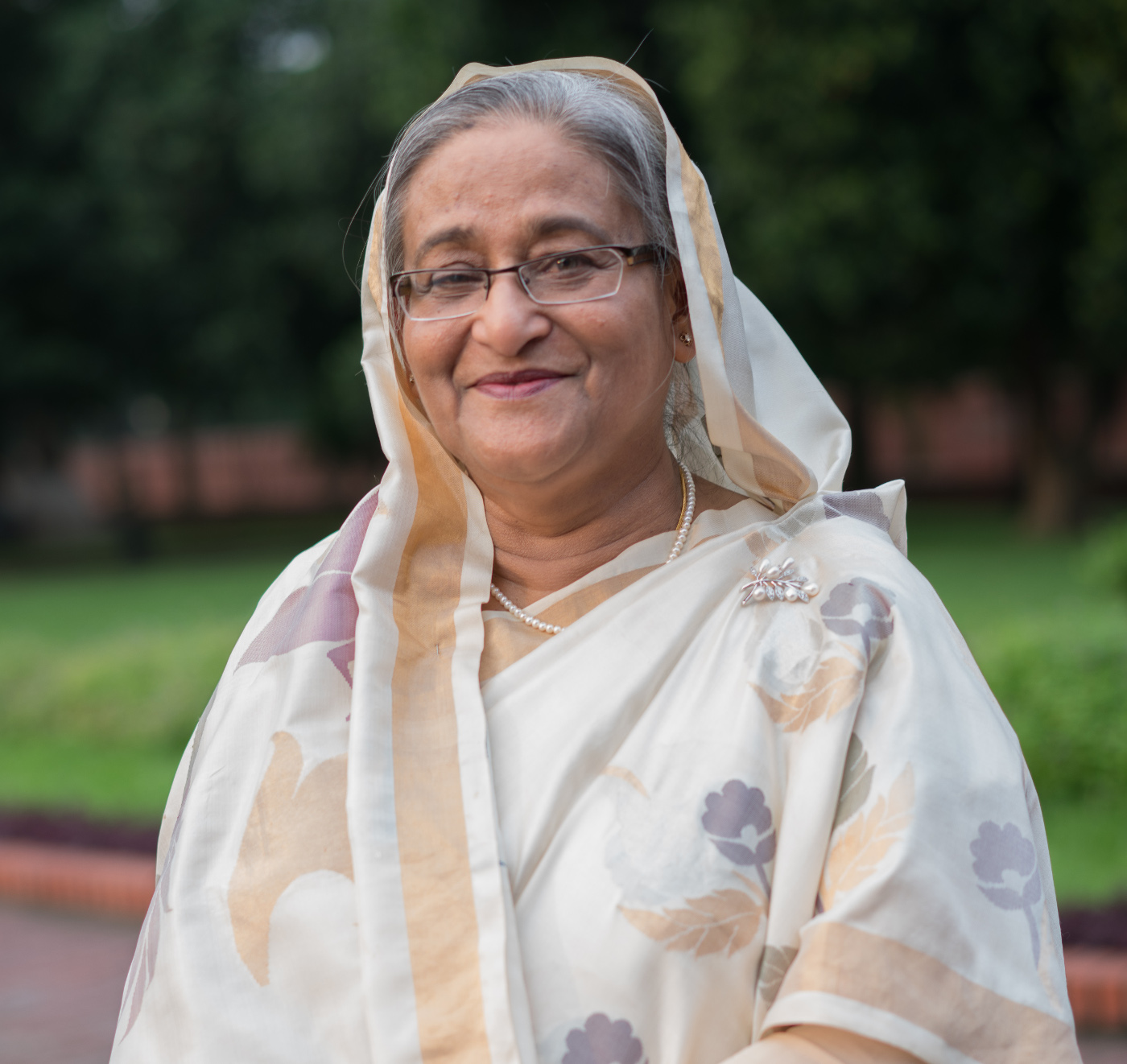The unseen hand of Beijing in the ouster of Sheikh Hasina as Prime Minister of Bangladesh should act as an eye-opener to all how dangerous it can be to hobnob with China.
For, the Sheikh Hasina regime was known to be pro-China, under her regime Beijing had established its Belt and Road Initiative in Bangladesh and a number of BRI projects are in progress in that country.
Like other countries which have accepted BRI projects, Bangladesh, too, is now in the risk of running into a debt trap.
Now, however, reports suggest that China has joined hands with the Inter Service Intelligence of Pakistan to install in Dhaka a government that will be inimical to the interests of India.
Intelligence reports say that China has patronized the ISI in escalating the protests and subversion in Bangladesh that have forced Hasina to resign and leave her country.
There was a tiff between Hasina and China when, during the inauguration of the road-cum-rail bridge across river Padma in June 2022, the Prime Minister of Bangladesh emphasized that the bridge was a pride of Bangladesh as it had been built fully with domestic financing.
Circumstantial evidence suggests that that China and Pakistan have taken the opportunity to escalate a movement by students in Bangladesh against quota in government jobs into a political movement demanding the resignation of Hasina as the Prime Minister.
The fundamentalist Jamaat-e-Islami that has always been an ally of the opposition Bangladesh Nationalist Party could assume control of the student movement; armed with substantial financial backing from Chinese entities operating in Pakistan.
The Ministry of State Security of China, one of the largest and most secretive intelligence organizations, could be involved, say the reports.
Pro-Pakistan and pro-China elements who had infiltrated into the Hasina government had aided them.
Hasina had tried to keep China in good humour. In the eyes of Beijing, her crime was that she had also tried to be fair to India.
The bosses of the Chinese Communist Party did not like this even-handed approach of Hasina to India and China.
They had wanted to take the whole pie. It is ironic that Beijing was the last foreign country that Hasina had visited as Prime Minister of Bangladesh, from July 8 to 10, before her ouster.
There she received a cold shoulder from the CCP bosses.
For, they were unhappy that Hasina had gone twice to Delhi before her Beijing visit; the first time to attend the swearing-in ceremony of Prime Minister of India Narendra Modi and the second time to sign an agreement with the Indian government to execute a river training and management project for Teesta in northern Bangladesh.
Beijing, which was also interested in the Teesta project, did not like that Sk Hasina had taken cognizance of Indian sensibilities against a substantial Chinese presence close to the vulnerable Siliguri corridor of India.
It was not surprising that Hasina received only 40 minutes from Chinese Premier Li Keqiang and half-an-hour from President of China Xi Jinping.
There was not even a formal reception arranged for Sk Hasina by the Chinese government. She had expected a loan of $5 billion from China to meet the foreign debt dues of Bangladesh but received only $137 million.
She had cut short her China visit by a day and returned to Dhaka. The course of events suggests that the blueprint had already been finalized to ensure her ouster.
The Chinese way of doing things is always full of duplicity.
It is difficult to reconcile the short shrift that Hasina had received in the hands of President Xi during her Beijing visit with the item that the Global Times, the mouthpiece of the CCP, had carried announcing her visit; terming the relationship between Bangladesh and China as one of “mutual benefit and strategic cooperation,” and one that would evolve in the coming days.
Perhaps there was also a subtle note of caution in that Global Times article that this relationship “comes with complexities that require careful navigation.”
To serve this interest, the mandarins of the CCP thought nothing of sacrificing Hasina and helping in the return of fundamentalist Islamic rule in Bangladesh.
The writer of the article noted: “This growing closeness between Dhaka and Beijing raises concerns among other regional players; particularly India.”
The call to Dhaka to ensure a balanced and independent foreign policy was a subtle message that Bangladesh should not lean towards either India or the U.S.
China signed a BRI agreement with Bangladesh involving a commitment of investment of $40 billion when President of China Xi Jinping visited Dhaka in 2016.
There was a tiff between Hasina and China when, during the inauguration of the road-cum-rail bridge across river Padma in June 2022, the Prime Minister of Bangladesh emphasized that the bridge was a pride of Bangladesh as it had been built fully with domestic financing.
Beijing had tried to steal the credit for building the bridge though the involvement of China was limited to the technical aspects only.
Three days before the inauguration of the bridge, then Chinese Ambassador to Dhaka Li Jiming had tried to link the bridge with the BRI.
The technologies of 20 foreign construction firms were involved in the construction of the bridge. Besides Chinese firms, Indian, American, British, German, Japanese and Taiwanese firms were also involved.
There had been other hiccups in the relation between China and Bangladesh during Hasina’s regime, like refusal of Chinese investments in Sonadia deep sea project.
A micro-finance wizard and a Nobel Peace Prize winner, a man who has been exposed to the liberal democratic traditions of the West, he is unlikely to fall into the BRI trap in his effort to uplift the economy of Bangladesh.
Dhaka had agreed to a port project only at Payra but that was a very unlikely place for a naval base for China.
The Global Times article has also betrayed the real interest of China in Bangladesh.
It is not the uplift of the economy of Bangladesh but serving the strategic interests of China.
“The strategic dimension of Bangladesh – China relations cannot be overlooked,” comments the article.
“Bangladesh’s geographical location makes it a crucial player in South Asia and a gateway to the Indian Ocean.
For China, deepening ties with Bangladesh contributes to securing vital maritime routes.”
Thus, the real Chinese interest is to get secure access to the Indian Ocean.
To serve this interest, the mandarins of the CCP thought nothing of sacrificing Hasina and helping in the return of fundamentalist Islamic rule in Bangladesh.
They hope that a government in Dhaka beholden to Islamabad will also help Beijing; that rebel groups from north-east India whom the Hasina government had refused shelter will again be allowed to set up bases in Bangladesh.
With Mohammed Yunus being named as the head of the interim government in Dhaka, their hopes may now be dashed.
A micro-finance wizard and a Nobel Peace Prize winner, a man who has been exposed to the liberal democratic traditions of the West, he is unlikely to fall into the BRI trap in his effort to uplift the economy of Bangladesh.









Comment